The Daily Bulletin is published by Internal and Leadership Communications, part of University Communications
Contact us at bulletin@uwaterloo.ca
Submission guidelines
Editor:
Brandon Sweet
University Communications
bulletin@uwaterloo.ca
This story was originally featured in Waterloo News.
Despite groups designated as visible minorities being at an increased risk of infection and mortality from COVID-19, higher vaccine hesitancy persists among Black Canadians when compared to the general public.
Some of the reasons put forward by members of the Black community as to why they’re hesitant to be vaccinated are lack of confidence in the safety of the vaccine and concerns about its risks and side effects.
A team of researchers from the University of Waterloo including microbiology professor Trevor Charles, pharmacy professor Kelly Grindrod, and health-systems researcher Moses Tetui, seek to allay some of those fears. 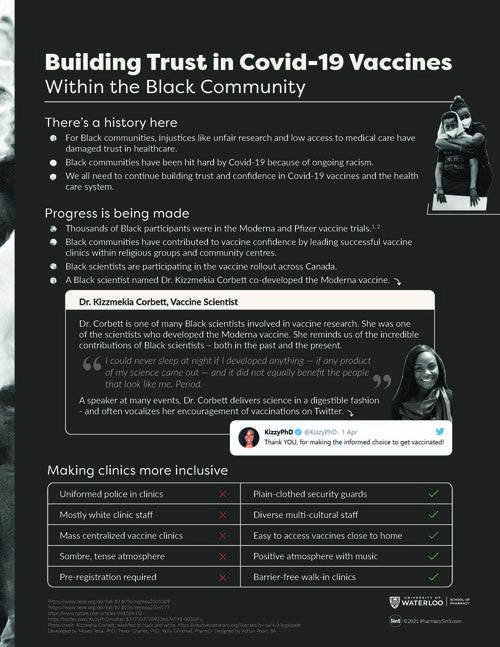
Yes, there is no evidence that the side-effects from COVID-19 vaccines are different for any ethnic or racialized group. For all the vaccines approved in Canada, most people experience a sore arm for a few days after the vaccine. Around half of people experience tiredness and a headache, and less than half have body aches, chills or feel feverish. These are all normal and expected side effects and are common with many other vaccines as well. They are signs that the immune system is learning how to recognize COVID.
For all these vaccines, these side effects will happen within a day or two of getting the vaccine and will disappear by the third or fourth day for most people. While there is a small chance that there will be a serious side effect, these are rare. Rare but serious side effects might be something like an allergic reaction. It’s always a great idea to speak with a health professional about any serious allergies or other health conditions or concerns you may have before you receive any vaccine.
Yes, around 10 per cent of the Pfizer and Moderna trial populations identified as Black. The studies demonstrated that there were no differences in efficacy or safety in any racialized or ethnic group. It is also important to note that there is no known evidence that would suggest that vaccines affect people differently based on racial differences. In the past, Black and Indigenous communities were used to test vaccines in what has widely been criticized and categorized as unethical today. The Moderna vaccine was co-developed by a Black immunologist named Dr. Kizzmekia Corbett.
Yes, vaccination is the best protection against severe disease arising from COVID-19 infection. Systemic racism means Black communities are more likely to live in crowded housing conditions or to work in higher-risk environments. When some members of the Black community decide “to wait and see” it can further increase the risk of COVID within the community. Often, people use a “wait and see” approach when they have certain questions or concerns about the vaccines. A better approach would be to discuss those concerns with a trusted health care provider or community leader. It’s important to note that the wait and see approach could have a similar risk for any racial or ethnic group depending on their risk of exposure.
A message from the Library.
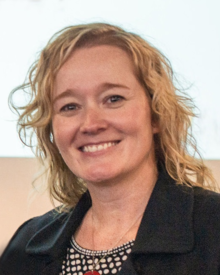 On July 1, Jude Doble joins the Library as Associate University Librarian, Administration and Strategic Initiatives. With her dynamic, people-oriented style of leadership, Jude will be a vital member of the Library's Executive team, managing internal resources and implementing strategic vision.
On July 1, Jude Doble joins the Library as Associate University Librarian, Administration and Strategic Initiatives. With her dynamic, people-oriented style of leadership, Jude will be a vital member of the Library's Executive team, managing internal resources and implementing strategic vision.
In her 20 years at the University of Waterloo, Jude has developed impressive expertise through a variety of roles with a focus on leadership, strategy development, change management, and project management. Jude is joining the Library from the Office of Advancement where she has been Director of Communications for the past five years, overseeing brand strategy, leading a high-performing team, and helping launch Anti-Racism and Internal Communications task forces. Previously, Jude partnered closely with University Relations on the Waterloo Magazine and the President’s transition committee, and while at the Student Success Office, led the cross-campus development of the award-winning UWaterloo student portal. She holds a Bachelor of Arts from the University of Waterloo and a Master of Arts in Leadership from the University of Guelph.
A passionate advocate for libraries, Jude served as the vice chair on the Waterloo Public Library board for six years. Her operational understanding, policy development and insights into the value of libraries in communities will be a great asset to help articulate and demonstrate the Library’s critical value to the University's core mission.

Policy 31 – University Expenses and the related Guidelines for Expenses have been updated, according to a recent memo that went out from Jim Rush, vice-president, academic & provost and Dennis Huber, vice-president, administration & finance.
The revised policy went into effect May 14, 2021, the date it received Presidential approval, and applies to non-salary University business expenses. The policy used to be known simply as Policy 31 – Travel, and was first established in 1971, with periodic amendments and modifications in subsequent versions.
“The draft policy was reviewed by councils and committees including Executive Council, Deans’ Council, the Faculty Relations Committee, and the Staff Relations Committee, as well as a broad range of individuals responsible for its day-to-day administration,” says the memo. “These consultations confirmed that there was significant support for the proposed revisions.”
Key updates include:
Other key features:
“The updates to the Policy and the related Guidelines are meant to address gaps and deficiencies identified in the previous Policy 31 – Travel which was last updated in 2012,” the memo continues. “These updates are meant to provide additional guidance to users, minimize inconsistencies when applying the policy, and enable improvements related to managing business expenses in a fiscally responsible manner.”
For full details, please visit the Policy 31 – University Expenses and related Guidelines for Expenses websites. If you have questions relating to the updated policy and guidelines, contact your faculty or department Financial Officer, and for general Finance questions, contact Finance via the Finance Jira Portal.
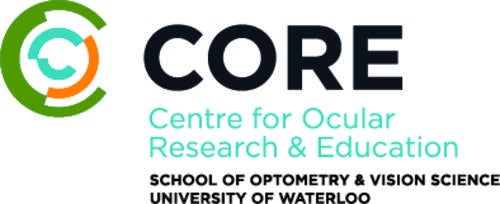
A recent Centre for Ocular Research & Education (CORE) communications campaign has won a major public relations award.
The Public Relations Society of America has named five McDougall Communications-led, optometry-centered campaigns among the world’s best over the past year, recognizing the agency’s work with five 2021 Silver Anvil honors. Included were programs for CORE and contact lens innovator CooperVision.
When erroneous reports of contact lens wear risks emerged during the pandemic, CORE engaged in a rapid-response campaign to set the record straight with healthcare professionals and consumers, generating more than 5,000 news stories and reaching 55 countries in only 30 days. Those efforts earned two Silver Anvil Awards in the highly competitive COVID-19 Crisis Communications (Healthcare) and COVID-19 Crisis Communications (Non-Profit) categories, and a Silver Anvil Award of Excellence for Global Communications.
A related, highly-targeted program for CORE regarding the same issue also earned a Silver Anvil Award of Excellence in the Most Effective Campaign on a Shoestring Budget category. Other nominees across CORE’s categories include Carnival Corporation, the Alaska SeaLife Center, Meals on Wheels, Xavier University of Louisiana, and Johnson & Johnson Medical Devices Companies.
The United States launch of CooperVision MiSight® 1 day, the first FDA-approved* soft contact lens designed for myopia control in children aged 8-12 at the initiation of treatment,1,2 was instrumental in building the category and helping eye care professionals embrace the breakthrough technology. The industry-focused campaign earned a Silver Anvil Award in the Marketing Business-to-Business Products category. A quantum computing program from Honeywell was the category’s Award of Excellence honoree.
“We’re not only privileged to work with organizations such as CooperVision and CORE who place a high value on strategic communications, but in a field that has incredible momentum and creativity. Our optometry and ophthalmology consulting now spans more than two decades. Never before have we experienced this degree of evolution and excitement among eye care professionals and consumers, plus new entrants to the sector. Clear, accurate and distinctive communications are more critical than ever to break through the noise,” said Mike McDougall, APR, Fellow PRSA, the firm’s founder and president.
Since 1944, the Silver Anvils have been presented to organizations that successfully address challenging issues with exemplary professional skill, creativity, and resourcefulness. They are widely considered the Oscars of the profession, owing to their stringent judging process and candidates from around the world. McDougall Communications won PRSA Silver Anvil Awards in 2015 and 2018, with members of the firm having earned another 10 Anvils and Awards of Excellence while in prior roles.
McDougall Communications, founded in 2011, is focused on helping clients across the Americas, Europe and Asia-Pacific meet their business objectives through a range of communications services, including strategic planning, media and influencer relations, reputation and crisis counsel, and social media management. It is regularly looked to as an influencer shaping global communications advancements, and works with a range of ophthalmic clients such as CooperVision, CORE, the World Council of Optometry, the Contact Lens Institute, the International Association of Contact Lens Educators and others.
The Centre for Ocular Research & Education (CORE)—formerly known as the Centre for Contact Lens Research—was established in 1988 at the University of Waterloo’s School of Optometry & Vision Science.
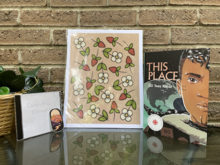 The Indigenous Initiatives Office continues its quiz challenge for National Indigenous History Month. Another quiz question was released Friday and campus community members have until Monday night to provide their answer. Each correct answer is entered into a draw to win a unique prize pack. A final quiz question will be released on June 30, the last day of Indigenous History Month, with a new prize pack full of creations made by Indigenous artists. See this past Friday’s question, and answer today for your chance to win.
The Indigenous Initiatives Office continues its quiz challenge for National Indigenous History Month. Another quiz question was released Friday and campus community members have until Monday night to provide their answer. Each correct answer is entered into a draw to win a unique prize pack. A final quiz question will be released on June 30, the last day of Indigenous History Month, with a new prize pack full of creations made by Indigenous artists. See this past Friday’s question, and answer today for your chance to win.
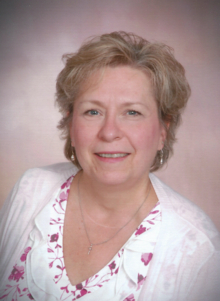 After 40 years working at the University, Karen Dyck is retiring. Her early years included working in the Dana Porter Library, Correspondence (now known as Centre for Extended Learning), and the Students Awards Office, but she spent most of her career in the Engineering Undergraduate Office as Academic Advisor, First Year Engineering. If you would like to join in the celebration, RSVP to Rose Guderian. at rguderia@uwaterloo.ca.
After 40 years working at the University, Karen Dyck is retiring. Her early years included working in the Dana Porter Library, Correspondence (now known as Centre for Extended Learning), and the Students Awards Office, but she spent most of her career in the Engineering Undergraduate Office as Academic Advisor, First Year Engineering. If you would like to join in the celebration, RSVP to Rose Guderian. at rguderia@uwaterloo.ca.
Spring 2021 Wellness Sessions are here, according to the Healthy Workplace Committee. Register for sessions on Establishing Work/Life Balance, Building Working Relationships, and more starting Monday, June 28. To learn more about each workshop being offered this term and how to register, visit uwaterloo.ca/healthy-workplace/spring-2021-wellness-sessions.
Students can visit the Student Success Office online for supports including academic development, international student resources, leadership development, exchange and study abroad, and opportunities to get involved.
Instructors can visit the Keep Learning website to get support on adapting their teaching and learning plans for an online environment.
Course templates are available within your course in LEARN to help you build and edit your content and assignment pages quickly.
The following workshops, webinars, and events are offered by the KL team (CTE, CEL, ITMS, LIB):
Finding Library Materials: Helping instructors support students in online classes offered: June 29, June 30, July 5 and July 8
WAI Inspired Wednesdays: Integrating reflection into your course (CTE7010), Wednesday, July 7, 10:00 a.m.
WAI Inspired Wednesdays: Designing authentic assessments (CTE7010), Wednesday, July 14, 10:00 a.m.
Introduction to PebblePad: What is PebblePad and Why Would I use it? Thursday, July 15, 10:00 a.m.
Employees can access resources to help them work remotely, including managing University records and privacy of personal information. Here are some tips for staying healthy while working from home.
Stay informed about COVID cases on campus by consulting the COVID case tracker.
The Writing and Communication Centre has virtual services and programs to help undergrads, grad students, postdocs and faculty members with academic writing.
Co-op students can get help finding a job and find supports to successfully work remotely, develop new skills, access wellness and career information, and contact a co-op or career advisor.
The Centre for Career Action assists undergraduates, graduate students, postdocs, staff, faculty, and alumni through navigating career services that are right for them. You can attend a one-on-one appointment or same day drop-in session at the CCA for assistance with cover letter writing, career planning and much more. You can also book an appointment online or visit our Live Chat to connect with our Client Support Team. The CCA is here to help you.
If you feel overwhelmed or anxious and need to talk to somebody, please contact the University’s Campus Wellness services, either Health Services or Counselling Services. You can also contact the University's Centre for Mental Health Research and Treatment. Good2Talk is a post-secondary student helpline available to all students.
The Library has published a resource guide on how to avoid information overload.
The Faculty Association of the University of Waterloo (FAUW) continues to advocate for its members. Check out the FAUW blog for more information.
The University of Waterloo Staff Association (UWSA) continues to advocate for its members. Check out the UWSA blog for more information.
The Indigenous Initiatives Office is a central hub that provides guidance, support, and resources to all Indigenous and non-Indigenous campus community members and oversees the university Indigenization strategy.
The Waterloo Indigenous Student Centre, based at St. Paul’s University College, provides support and resources for Indigenous students, and educational outreach programs for the broader community, including lectures, and events.
WUSA supports for students:
Peer support - MATES, Glow Centre, RAISE, Women’s Centre - Visit https://wusa.ca/peersupport to book an appointment
Bike Centre – Open via Appointments and Rentals
Campus Response Team, ICSN, Off Campus Community and Co-op Connection all available online. Check https://wusa.ca for more details.
Food Support Service food hampers are currently available from the Turnkey Desk on weekdays from 7:30 a.m. to 7:00 p.m. in the Student Life Centre. If you have any questions please email us at foodsupport@wusa.ca.
Centre for Academic Policy Support - CAPS is here to assist Waterloo undergraduates throughout their experience in navigating academic policy in the instances of filing petitions, grievances and appeals. Please contact them at caps@wusa.ca. More information is available.
WUSA Commissioners who can help in a variety of areas that students may be experiencing during this time:
WUSA Student Legal Protection Program - Seeking legal counsel can be intimidating, especially if it’s your first time facing a legal issue. The legal assistance helpline provides quick access to legal advice in any area of law, including criminal. Just call 1-833-202-4571.
Empower Me is a confidential mental health and wellness service that connects students with qualified counsellors 24/7. They can be reached at 1-833-628-5589.
Healthy Warriors at Home (Online Fitness)
Fitness Classes on Warrior Field. Starting June 14. Power Yoga, HIIT and Zumba. Only $4/class. Advanced registration required.
Warriors vs. Laurier Blood Donation Battle. Join your fellow Warriors, donate blood and help us win the Blood Battle against Laurier for a second year in a row. Set up a profile or add the PFL code: UNIV960995 to your account if you have a blood.ca account already. Questions? Contact WarriorsInfo@uwaterloo.ca.
Drop-in to Warrior Virtual Study Halls on Wednesdays from 5:30 p.m. to 7:00 p.m. Come together in this virtual space to set goals and work independently or in groups each week.
Renison English Language Institute continues to offer virtual events and workshops to help students practice their English language skills.
Bike Month, Tuesday, June 1 to Wednesday, June 30.
NEW - Register for Spring 2021 Wellness Sessions, beginning Monday, June 28.
International education consultation meeting hosted by Waterloo International, Monday, June 28, 2:00 p.m. to 3:00 p.m.
Open Education Resources (OER) Workshop: Copyright, Licensing, Sourcing and Selection, June 29, 10:00 a.m. Registration required.
The Honourable Murray Sinclair - National Indigenous History Month Keynote, Tuesday, June 29, 1:00 p.m.
Concept Intro Session: Pitch to Win, Tuesday, June 29, 5:30 p.m., virtual event.
Canada Day holiday, most University operations closed, Thursday, July 1.
University holiday, most operations closed, Friday, July 2.
NEW - Karen Dyck retirement celebration, Monday, July 5, 1:30 p.m. to 2:30 p.m. on MS Teams. RSVP to Rose Guderian, rguderia@uwaterloo.ca.
NEW - Waterloo International Workshop on Neural Engineering and Rehabilitation
NEW - Canadian Engineering Grand Challenges and Technological Stewardship, Wednesday, July 7, 6:30 p.m.
WatITis proposal submission deadline, Thursday, July 8.
NEW - Quantum Today: A measurement-based variational quantum eigensolver, Thursday, July 8, 12 noon.
NEW - The future-ready workforce series - Converting & retaining the next generation of talent, hosted by the University of Waterloo, Tuesday, July 14, 12:00 p.m.
Public Health and Health Systems. Elle Wadsworth, "The effect of price and retail availability on the use of illegal and legal non-medical cannabis in Canada and the United States." Supervisor David Hammond. Available upon request from the Faculty of Health, Health Graduate Administration. Oral defence Thursday, August 5, 2021, 12:oo p.m.
Environment, Resources and Sustainability. Shefaza Esmail, “Investigating Food Waste Diversion and Compost Use in Urban Agriculture for Soil Management in Mwanza, Tanzania”. Supervisor, Maren Oelbermann. Available upon request from the Faculty of Environment, Administrator, Graduate Studies. Oral defence Friday, July 9, 1:00 p.m.
Computer Science. Nikolas Unger, “End-to-End Encrypted Group Messaging with Insider Security.” Supervisor, Ian Goldberg. Thesis available from MGO – mgo@uwaterloo.ca. Oral defence Friday, July 9, 1:00 p.m.
Psychology. Shane Littrell, "The psychology of bullshitting: Measurement, correlates, and outcomes of the propensity to mislead others." Supervisors, Jonathan Fugelsang and Evan Risko. Available upon request from the Faculty of Arts, Graduate Studies and Research Officer. Oral defence Monday, July 12, 10:00 a.m.
Physics & Astronomy. Anna Golubeva, “Neural networks and quantum many-body physics: exploring reciprocal benefits.” Supervisor(s), Roger Melko. Thesis available by request from SGO – science.dissertations@uwaterloo.ca. Oral defence Monday, July 12, 1:00 p.m.
The Daily Bulletin is published by Internal and Leadership Communications, part of University Communications
Contact us at bulletin@uwaterloo.ca
Submission guidelines
The University of Waterloo acknowledges that much of our work takes place on the traditional territory of the Neutral, Anishinaabeg, and Haudenosaunee peoples. Our main campus is situated on the Haldimand Tract, the land granted to the Six Nations that includes six miles on each side of the Grand River. Our active work toward reconciliation takes place across our campuses through research, learning, teaching, and community building, and is co-ordinated within the Office of Indigenous Relations.